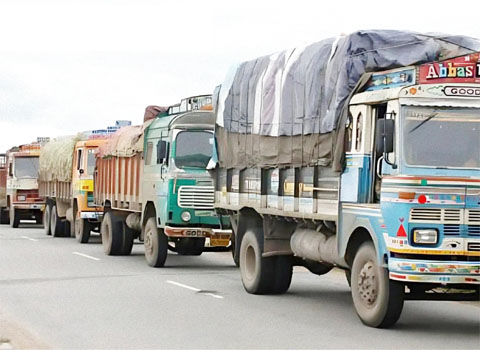DE Online Desk:
India has withdrawn the transshipment facility that allowed export cargo from Bangladesh to third countries through Indian land customs stations.
The Department of Revenue under the Indian Ministry of Finance on Tuesday issued a circular rescinding the facility with immediate effect.
India in a circular on June 29, 2020 had permitted the movement of Bangladeshi export cargo in containers or closed-body trucks via Indian ports and airports.
In Tuesday’s circular, India said that although the facility had now been withdrawn, cargo already in transit would be allowed to exit India in accordance with the procedures outlined in the June 29, 2020 circular.
India has officially withdrawn the transshipment facility previously extended to Bangladesh for exporting goods to third countries via Indian territory, according to a statement from India’s Ministry of External Affairs.
Explaining the decision, the Indian external affairs ministry said, ‘The transshipment facility extended to Bangladesh had, over time, led to significant congestion at our airports and ports.
Logistical delays and increased costs were hindering our own exports and creating backlogs. The facility, therefore, has been withdrawn with effect from April 8, 2025.’
The MEA clarified that the new measures would not affect Bangladesh’s exports to Nepal or Bhutan transiting through India.
Exporters have expressed concern over India’s decision to withdraw the transshipment facility for exports to third countries, saying that in international trade, opportunity, options, and flexibility matter more than the volume of goods.
Speaking to New Age, the Bangladesh Garment Manufacturers and Exporters Association’s former president Faruque Hassan said that India had extended the facility in 2020 during the Covid-19 pandemic, when Bangladeshi exporters were facing severe difficulties in shipping goods from Dhaka airport due to a lack of scanners.
‘Now, it is not important how much we export through Indian ports; the measure will reduce the opportunities and options for Bangladesh in international trade,’ he said.
Another former BGMEA president Rubana Huq said that the impact of India’s decision would not be severe for the readymade garment sector, as Bangladesh has always prioritised direct shipping and there had been no significant transshipment through India.
‘However, it could hinder the potential for intraregional trade,’ she said.

